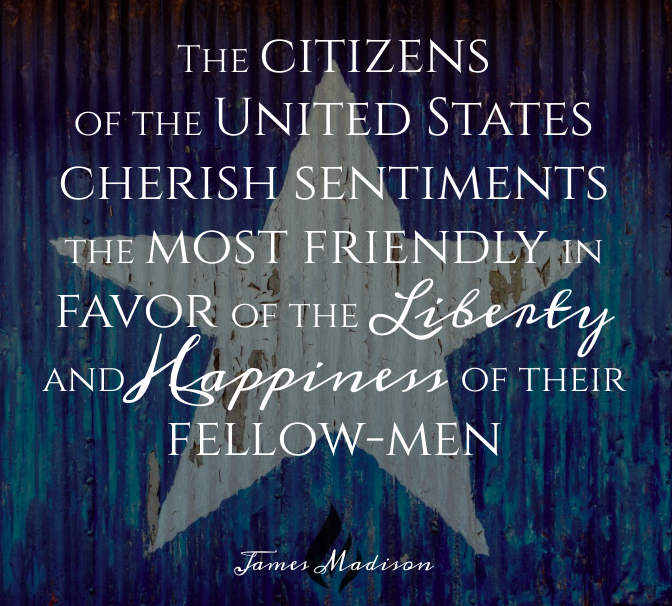Patriot Academy Alumnus Jake McDonald
In the wake of the latest chemical attack in Syria that killed nearly 75 people and wounded over 550 others, social media sites and online forum boards have become rife with self-proclaimed foreign policy experts.
While the interventionism vs. isolationist debate has been had by many more smarter and more qualified than me, I would like to touch on one forgotten piece in the debate that I have found to be left out of nearly every post or discussion.
What Does America Mean to the Rest of the World?
I would assert that America is much more than just an economic or cultural power; America is a guide, a model even, for countries and peoples to strive for. America has stood as a bastion for liberation and freedom since its founding, but if the Syria situation has revealed one thing, it is that we are desperately close to losing that standing.
James Monroe, in his famous doctrine that laid the foundation for the identity of American foreign policy, said this:
“The citizens of the United States cherish sentiments the most friendly in favor of the liberty and happiness of their fellow-men…”
Monroe understood what abstract importance America has to the rest of the globe; we are an exception, an ongoing experiment in personal liberty and self-reliance that has worked much longer than ever expected.
We cherish these sentiments of liberty and happiness for all because we know how fulfilling they are. We embrace the Lockean ideals of natural rights, and when these rights are being threatened or simply disregarded by a tyrannical regime, the America that the world knows and that I know fights back.
JFK
Another President who clearly understood America’s role on the global stage was JFK.
While his task was unique in many ways with the ties to the rise of Communism, these words from a 1961 speech of his ring true today:
“We do not want to fight—but we have fought before. And others in earlier times have made the same dangerous mistake of assuming that the West was too selfish and too soft and too divided to resist invasions of freedoms in other lands.”
The simple existence of a dictator or of a non-democratic system of government does not merit American intervention. But when human rights are being bloodily violated and when men, women, and children are dying from attacks by their own government, America is forced to act—or, at least, the America that I know is.
While the debate can rage on as to what strategic Syrian involvement would look like, I wish only to highlight the message America would be sending through its silence.
The America I Know
The America that Monroe knew, the America that JFK knew, the America that the world knows, and the America that I know, would be lost.
The silence would send a deafening roar to oppressed peoples around the globe that hope for liberation is fading; to allow chemical attacks of this nature and this magnitude to go unpunished would become a heinous bullet point in the American pedigree that includes such past inaction as in the Rwandan and Armenian genocides.
But I do have confidence, given the leaders we now have and the indications in action and in speech that have been given to us on similar matters, in the America that I know to pull through.
Granted, intervention this time will have to look very different than it did in 2003. There must be an understanding before beginning such a task that American involvement would be there not to establish a western democracy in Syria, but instead to aid a freedom-hungry people in their quest for recognition and protection of natural rights.
The details of such a plan will be complicated and difficult, but if we wish to carry on the American spirit that has passed down to us through the blood and sacrifice of generations before us, action is necessary.
The eyes of the world are watching; now what will we do?
What do you think? Comment below with your take!














